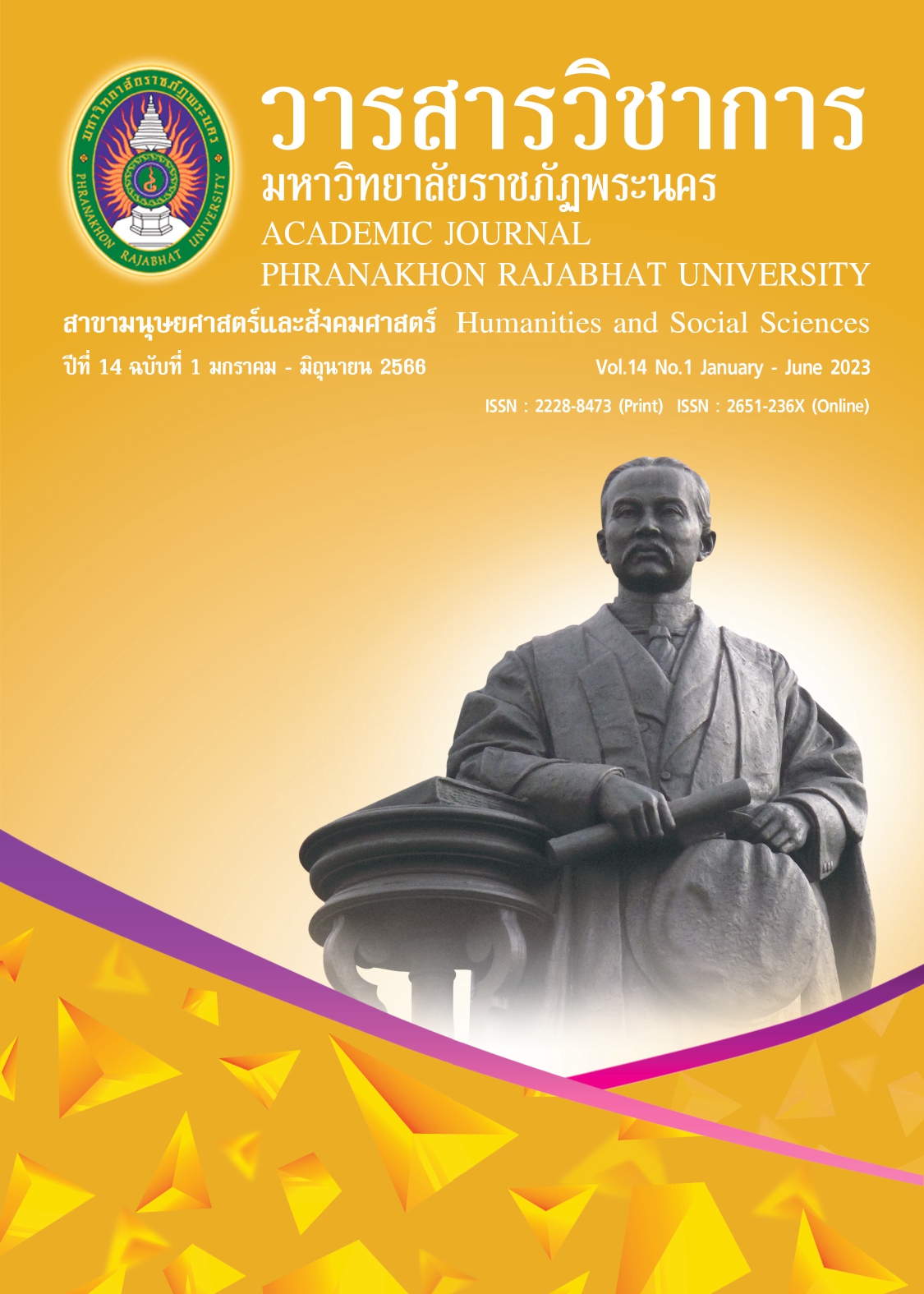EFFECTIVENESS OF PUBLIC MANAGEMENT IN LIFELONG LEARNING AND LIFE SKILLS ENHANCEMENT FOR THE ELDERLY
Keywords:
Public Administration, Lifelong Learning, Life skills, ElderlyAbstract
This research aimed to study 1) the effectiveness of public management in lifelong learning and life skills enhancement for the elderly, 2) factors influencing public management, and 3) useful suggestions on enhancing the elderly’s capacity. This was qualitative research by selecting two groups of informants including 3.1) the policy makers and planers concerning the elderly, and 3.2) the local executives and the elderly. These key informants consisted of 17 people and 3 groups of elderly living in Bangkok and in Pathum Thani province. The researcher synthesized the data, documents, interviews, and non-participatory observations in order to answer the research questions. The tools used in this research were an interview form and observation. The data were analyzed by deductive reasoning method whereas the inductive reasoning method was used for the field data. The content analysis was used to make a summary from the key informants’ data. The findings revealed that the government administration on lifelong learning for the elderly still lacked effectiveness due to 1) lack of direct policy, 2) lack of interagency coordination, 3) lack of progressive evaluation and clear indicators, 4) negative attitude towards the elderly, and 5) lack of budget dedicated to lifelong learning for the elderly. The factors affecting the government administration included leadership, communication, network and coordination, teamwork, attitude of the staff, policy clarity, and budget. The recommendation on practical approach were as follows: 1) engaging private sector in learning management, 2) encouraging the elderly employment, 3) encouraging the local community to provide learning for the elderly, and 4) enhancing occupational grouping of the elderly. Regarding the policy recommendations, the government should formulate the policy on lifelong learning with the emphasis on integration and coordination between agencies and continuously assessing performance and adjusting the public administration style using various types in accordance with network management.
References
Baoproom, A. (2018). An Elderly Care Model among Caregiving Volunteers in Phichit Province. Proceedings of 56th Kasetsart University Annual Conference: Education, Economics and Business Administration, Humanities and Social Sciences, Bangkok. [In Thai]
Boston, J., Martin, J., Pallot, J., & Walsh, P. (1996). Public Management: The New Zealand Model. Auckland: Oxford University Press.
Dhirathiti, S. N., & Pichitpatja, P. (2017). Characteristics and Differences of Lifelong Learning Policy Implementation for the Elderly in Thailand. Educational Research and Policy Practice, 17(1), 53-68.
DOP. (2017). Follow Up and Evaluation Report for Older Adults Phase 2 Plan. Bangkok: Chulalongkorn University Press. [In Thai]
DOP. (2021). Annual Report for Budget Year 2021. Retrieved from https://www.dop
.go.th/download/implementation/th1652184436-1421_0.pdf. [2022, 30 Dec]
DOP. (2022). Action Plan for Older Adults Phase 3 (2003-2037). Retrieved from https://www.dop.go.th/download/laws/th1653553501-843_0.pdf. [2023, 21 Jan]
Hasan, A. (2012). Lifelong Learning in OECD and Developing Countries: An Interpretation and Assessment. In Second International Handbook of Lifelong
Learning (pp. 471-497). Dordrecht, Netherlands: Springer.
Jamsai, T. (2021). Policy on Elderly Welfare in Thailand. Journal of MCU Social Development, 6(3), 1-16. [In Thai]
Laohavichien, U. (2023). Public Management Innovation and Organizational Management in Time of Crisis. Bangkok: Ramkhamhang University Press. [In Thai]
Luka, I., & Sungsri, S. (2015). Lifelong Learning Strategies and Practice in Latvia and Thailand. Policy Futures in Education, 13(4), 529-545.
Maureen, T. (2012). Elder Learning in Hong Kong. In G. B. Lewis & T. Maureen (Eds.), Active Ageing, Active Learning (pp. 163-174). Dordrecht, Netherlands: Springer.
PBO. (2019). Guideline in Managing Budget for Older Adults’ Social Welfare. Dublin, Island: Research Report Parliamentary Budget Office.
Poonsawat, A., & Lamlert, W. (2017). Ageing Society with Retirement Criteria in Thailand. KKU Research Journal of Humanities and Social Sciences, 5(3), 83-93.
[In Thai]
Rattana-Ubon, A. (2019). Promotion of Learning for Adults and the Elderly in Thai Society. Bangkok: Chulalongkorn University Press. [In Thai]
Sanguansak, P. (2021). Administrative Policy towards the Elderly of Local Administrative Organizations in Kanchanaburi Province under the national strategic framework. Journal of Buddhist Social Sciences and Anthropology, 7(2), 515-529. [In Thai]
Sridum, I. (2010). Factors Affecting the Implementation of the Peace Building Process in the Four Southernmost Provinces of Thailand Policy: A Case Study of Pattani Province. Retrieved from https://doi.nrct.go.th/ListDoi/list
Detail?Resolve_DOI=10.14457/MU.the.2010.345. [2022, 30 Dec]
Tapapiwan, P., & Laosuwan, T. (2014). Public-Community Sector Network Development for Health Enhancement of Elderly in Muang Maha Sakakham. Bangkok: National Research Council of Thailand.
TGRI. (2019). Situation of the Thai Elderly 2018. Nakhon Pathum: Printery. [In Thai]
United Nations. (2019). Global Report on Ageism: Department of Economics and Social Affairs, Social Inclusion and the United Nations Population Fund. Retrieved from https://www.un.org/development/desa/dspd/wpcontent/uploads/
sites/22/2021/03/9789240016866-eng.pdf. [2022, 20 Oct]
WHO. (2002). Active Ageing: A Policy Framework. Retrieved from https://apps.who
.int/iris/handle/10665/67215 [2022, 20 Oct]
Yamamoto, H. (2003). “New Public Management-Japan’s Practice” IMPS Policy Paper 293E. Bangkok: Institute for International Policy Studies (IMPS). [In Thai]
Yomsiri, P., & Somphong, S. (2020). Integrating the Quality of Life Development for the Elderly According to the 12th National Economic and Social Development Plan (2017-2021). Journal of Buddhist Social Sciences and Anthropology, 5(9), 219-229. [In Thai]
Yorozu, R. (2017). Lifelong Learning in Transformation: Promising Practices in Southeast Asia. Retrieved from https://uil.unesco.org/lifelong-learning/policies-database/
lifelong-learning-transformation-promising-practices-southeast. [2022, 20 Oct.]
Downloads
Published
How to Cite
Issue
Section
License
Copyright (c) 2023 Academic Journal Phranakhon Rajabhat University

This work is licensed under a Creative Commons Attribution-NonCommercial-NoDerivatives 4.0 International License.
"บทความวิชาการในวารสารฉบับนี้ ถือเป็นความรับผิดชอบของผู้เขียนเท่านั้น"
สงวนลิขสิทธิ์ตามพระราชบัญญัติลิขสิทธิ์




